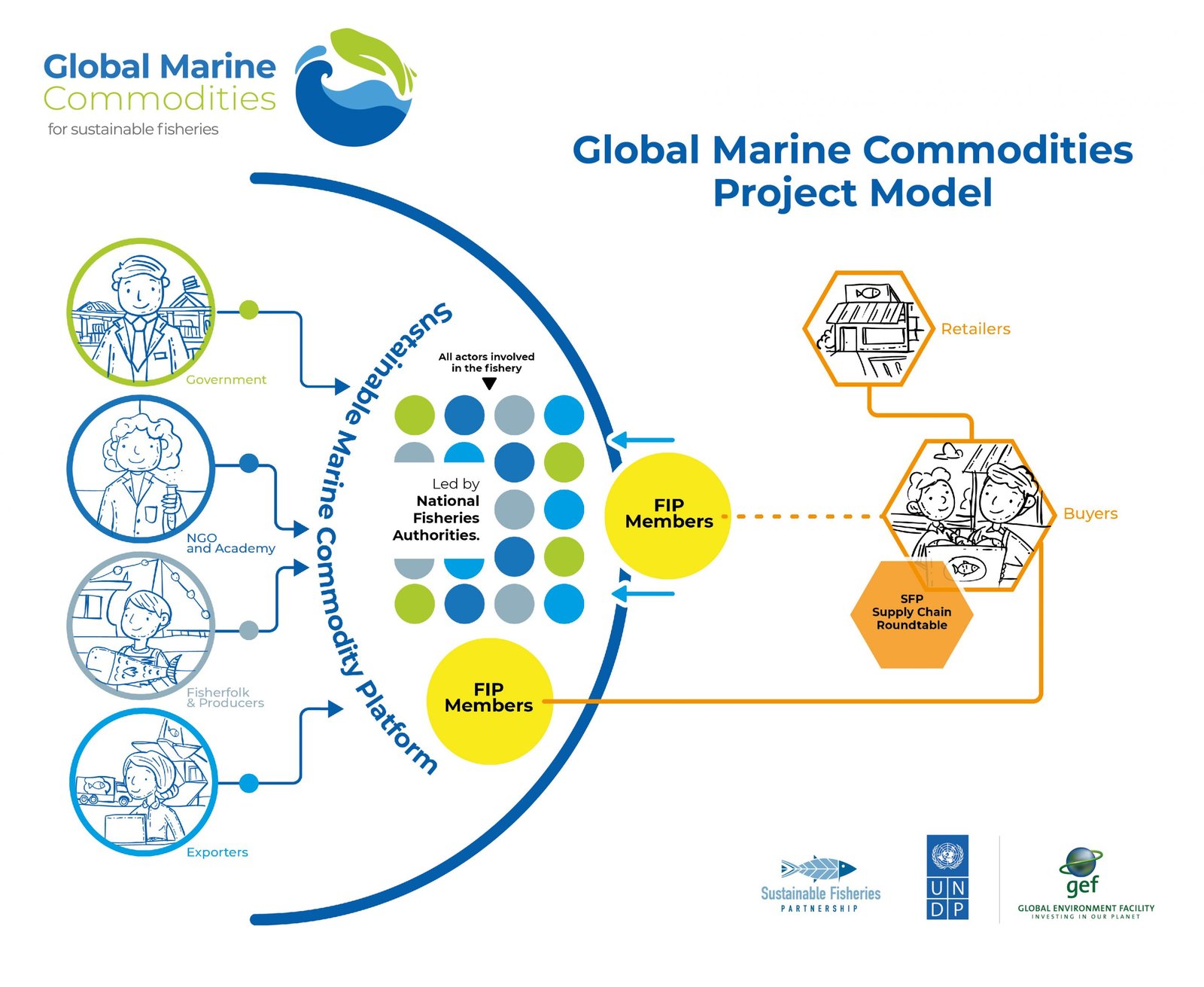Blog by:
Karen Hildahl, Monitoring and Evaluation Specialist, GMC/UNDP
Diego Orellana, International Project Coordinator ,GMC/UNDP
Enrique Alonso, Fisheries Coordinator, SFP
“Business as usual”. It was not long ago that we used this expression. However, the COVID-19 global pandemic has required us to rethink its meaning. The crisis has had profound impacts on the seafood sector, and on the livelihoods of industrial and small-scale fishers as a result. The food system has been disrupted all along the supply chain, from demand and supply to production. The pandemic has exposed the vulnerability of communities dependent on fisheries as a result of the informal status of the fishing activity. Women and men who work in unmanaged fisheries often lack access to basic rights and fishing communities that operate in the informal economy risk being left out of relief aid.
The current situation offers an opportunity to reflect on the state of fisheries prior to the COVID-19 crisis and highlights the need for a paradigm shift in the fisheries sector. On the demand side, there are still markets that do not distinguish where their fish come from and buy them without any sustainability requirements. On the supply side, illegal, unreported and unregulated (IUU) fishing continues to raise global challenges, and many fishers are left vulnerable as they operate under informal regimes.
The crisis is shedding light on the urgent need to strengthen management and enforcement as well as formality in the fishing sector. Economic reactivation measures post- COVID-19 should go hand in hand with improved fisheries governance. The GEF-funded UNDP/Global Marine Commodities (GMC) project and its partner Sustainable Fisheries Partnership (SFP), promote a multi-actor approach that can help prevent fisheries from slipping back into the pre- COVID-19 scenario, by avoiding destructive practices and achieving sustainable marine commodities. Actions implemented by the project are focused on:
- Sustainable Marine Commodity Platforms (SMCPs) bring together national fisheries authorities, fishers, civil society, the private sector and other key stakeholders in participatory dialogue sessions to identify and tackle the root causes that impede the sustainable management of target fisheries. This participatory co-management mechanism builds the legitimacy of management decisions by integrating the voices of all stakeholders at different levels of decision-making and can be used in post- COVID-19 economic reactivation measures.
- Fishery Improvement Projects (FIPs) are multi-stakeholder efforts to promote the sustainability of a given fishery (whether or not the fishery intends to pursue certification), often led by the private sector. These spaces can be used to prioritize formality in the fishing sector and basic elements of fishery management such as data gathering, stock assessments and by-catch mitigation. In countries where FIPs are in place as a tool to improve fisheries, they can be used to promote transparency, collaboration and data sharing in a post- COVID-19 scenario.
- Supply Chain Roundtables (SRs) are multi-actor spaces that bring seafood buyers together in a pre-competitive environment to foster improvements in fisheries. SRs can be used to gather critical information in the context of COVID-19 in different seafood sectors, exchange lessons learned, share resource materials and provide advice to businesses involved in conjunction with health experts and organizations. As an example of this collaboration in the field, SFP has used its extensive network of suppliers and buyers, fishery and aquaculture improvement project (FIP and AIP) leaders, and others to share available resource materials to help businesses deal with the effects of COVID-19.

Global Marine Commodities Project Model
The COVID-19 pandemic has shown us that there is an opportunity to promote sustainable fisheries actions that involve the entire supply chain. The GMC Project works with international supply chains as well as domestic producers and processors. It serves as a test case of a comprehensive co-management model, integrating government-coordinated platforms, market-based tools and private sector led FIPs.
The private sector can steer change by developing and promoting the right set of incentives during the recovery process. Responsible businesses can broaden pre-competitive collaborations in support of global policy requirements that affect most of the fisheries they are involved with or depend on. They can join together to push for improved fisheries management as part of reactivation measures and renew commitments towards sustainable sourcing.
There is a need to further promote collaborations, learn lessons from this process, rethink strategies and promote more innovation in the future to address the issues raised by this crisis and continue to advance sustainable fisheries and human well-being.